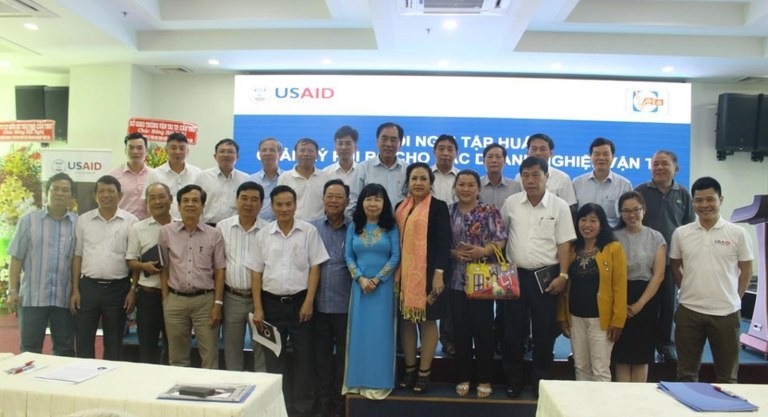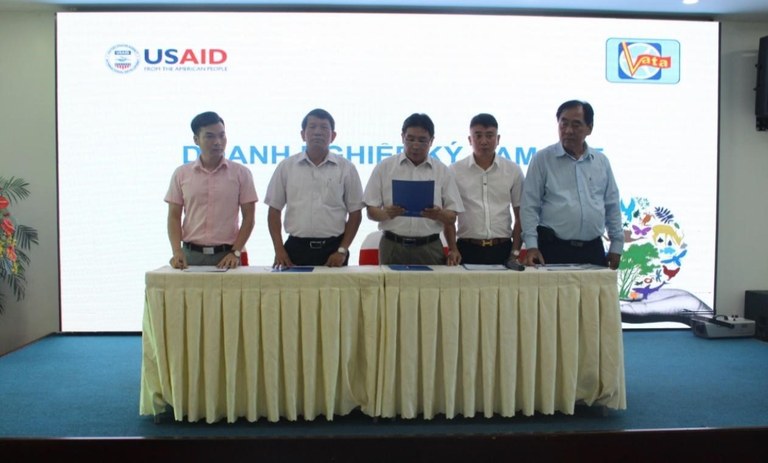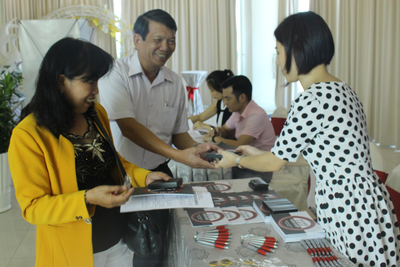USAID Wildlife Asia and VATA commit to tackling illegal wildlife transport and consumption
USAID Wildlife Asia’s strategy to engage Vietnam’s business sector to counter wildlife trafficking is to motivate business champions to incorporate counter wildlife trafficking in their corporate social responsibility policies. This includes increasing company awareness that implementing these policies to prevent wildlife crime in the workplace avoids business risks (and corresponding penalties) that may incur if, albeit unwittingly, they are transporting illegal wildlife. Preventing wildlife crime is, therefore, good for business. The Vietnam Automobile and Transport Association (VATA) is an important part of USAID Wildlife Asia’s strategy as their member organizations are part of the transportation supply chain and their support is significant in preventing transportation of illegal wildlife. Their engagement is significant in contributing to the USAID Indo-Pacific Strategy, one of the pillars of which is Security aimed at promoting regional stability and addressing shared threats such as transnational crime and terrorism.
Realizing the crucial role of the transport industry in disrupting the illegal trade chain, on June 27, 2019, USAID Wildlife Asia and VATA trained over 100 transport heads, managers, and driver team leaders from 40 leading transport companies in Can Tho City about risk management and the benefits of wildlife-related corporate social responsibility. This specialized workshop for transport companies emphasized combating wildlife crime and reducing demand for illegal wildlife consumption. Topics covered included the legislation governing the transport of wildlife products, updates on wildlife consumption in Vietnam, and tips on risk management.
USAID Wildlife Asia further shared the themes of this training at the VATA Annual Members meeting on June 28. The annual meeting welcomed over 100 participants, including representatives of the Ministry of Transport, Vietnam Road Administration, Can Tho City Department of Transport, leaders and senior officials from VATA, the Central Highland and Southern provincial automobile transport associations, transport enterprises, bus station authorities from the Northern provincial automobile transport associations, and driver team leaders.

USAID Wildlife Asia presented strategies and activities that VATA members can adopt for their businesses to help protect wildlife, such as confirming their commitment to counter wildlife trafficking by displaying and disseminating materials through online and offline channels including working premises and company website.
Through these activities, USAID Wildlife Asia recruited seven new champions, five of whom stepped forward to declare their full support for these initiatives in reducing demand for illegal wildlife products in Vietnam, with an additional 219 participants pledging never to consume or transport illegal wildlife products.

VATA integrated wildlife protection into its code of conduct and guidance for members in September 2019. The first-ever official letter on wildlife protection will be issued to 58 provincial association and 1,500 members of VATA. The letter updates provincial associations and members on VATA’s involvement in the USAID Wildlife Asia, as well as includes provisions against consuming or transporting illegal wildlife products and featuring commitments to disseminate counter wildlife trafficking messaging to the target audience.


